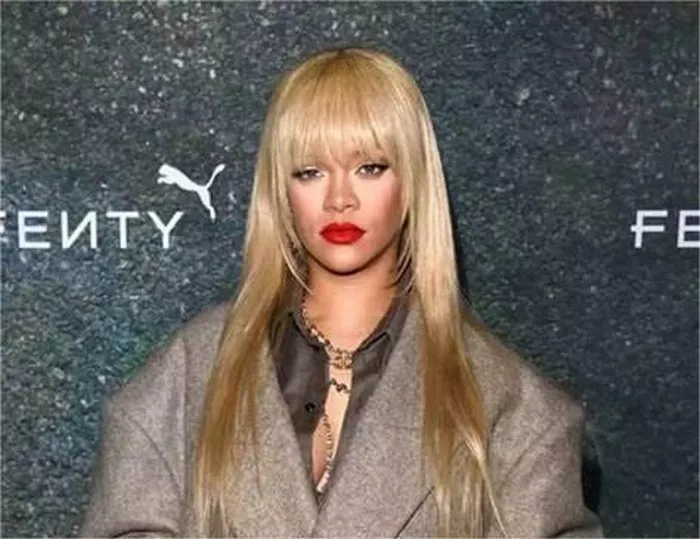Protein treatments have become a cornerstone of the haircare industry, with many products claiming to repair damaged strands by infusing hair with protein. However, a growing debate on social media, particularly TikTok, has sparked concern over the possibility of “protein overload,” with experts and influencers warning that excessive use of these products might actually cause more harm than good.
In a March video, TikTok influencer and hairstylist Zach Mesquit highlighted the potential risks of protein overload. He explained that the buildup of protein on the hair shaft can make hair more brittle. “The more of that hard coating that is built up on the hair shaft from those proteins, the more brittle the hair becomes,” he said. Mesquit cautioned that while these products are marketed as hair saviors, they might be exacerbating the problem.
On the other hand, some experts dispute the protein overload theory, suggesting that the real issue lies in the formulation of the products themselves. TikTok personality Sareena Akarim argued in a previous video that most proteins don’t penetrate deep into the hair and that protein overload is often a result of an imbalance between protein and conditioning agents in the product. “What’s likely happening is that the products don’t have a good balance of conditioning agents,” she explained.
The Role of Protein in Haircare
Proteins, such as keratin, collagen, and amino acids, are commonly used in hair treatments like shampoos, conditioners, and masks. The premise behind these treatments is that adding protein to the hair, which is naturally made of protein, can help strengthen and repair damaged strands.
Anna Chacon, MD, a board-certified dermatologist, explained that protein treatments can help strengthen hair and protect the cuticle by filling in breakage gaps. She noted that these treatments can also improve the texture of hair, making it shinier, smoother, and more voluminous.
Ross Kopelman, MD, a hair restoration surgeon, likened protein to scaffolding for the hair, essential for its strength. Without sufficient protein, hair can become weak and lack volume. However, clinical research on the subject remains limited.
Can You Overdo It on Protein Treatments?
While protein can strengthen and repair hair, too much of it can have the opposite effect. According to Rodger Azadganian, owner of äz Haircare, excess protein can lead to dry, stiff, and brittle hair. He explained, “When there’s too much protein, hair can turn stiff, dry, and brittle. It loses that bounce and flexibility, and that’s when breakage happens.”
Experts attribute this issue to a lack of moisture. Protein can help strengthen hair, but without adequate hydration, the hair can become stiff and prone to breakage. This problem is particularly noticeable in individuals with low-porosity hair, which doesn’t absorb moisture as effectively as other hair types.
Azadganian also emphasized the importance of balancing protein treatments with moisture. “When you keep adding protein without balancing it with hydration, the hair can start feeling stiff, almost like straw,” he said, making it more vulnerable to snapping.
Is Protein Overload a Myth?
While some experts caution against overusing protein treatments, others argue that the issue is overstated. They claim that what many people mistake for protein overload is actually a case of product buildup or insufficient conditioning. Azadganian noted that both sides of the argument hold some truth: “Some people absolutely overdo it with protein treatments, while others mistake dry, damaged hair for protein overload when, really, they just need a deep conditioner.”
It’s essential to consider that hair damage may not always be caused by protein overload. Underlying issues like hormonal changes, nutrient deficiencies, or scalp conditions could also contribute to hair problems. Therefore, it’s important not to attribute all hair issues to protein treatments alone.
Choosing the Right Haircare Products
Navigating the vast array of haircare products can be challenging, but finding the right products for your hair type is crucial. Experts recommend consulting with a stylist who can guide you on what your hair needs, taking into account factors like seasonality and hormonal shifts.
When choosing a protein-rich hair product, it’s essential to balance it with a hydrating one. Kopelman suggested alternating between protein treatments and deep-conditioning masks or finding products that provide both protein and moisture. A good repairing conditioner should include proteins as well as moisture-locking ingredients like glycerin, hyaluronic acid, or natural oils such as argan, jojoba, or shea butter.
If your hair feels brittle and snaps without stretching, it may be time to reduce protein and focus more on hydration. Additionally, Chacon advised avoiding hair products that contain harmful chemicals like parabens and sulfates, which can contribute to long-term damage.
For those experiencing chronic hair breakage or thinning, consulting with a medical professional is recommended. Kopelman stressed that issues like scalp conditions or nutritional deficiencies may need to be addressed to ensure long-term hair health.
In conclusion, while protein can benefit hair, it’s important to strike a balance. Excessive protein, without adequate moisture, can lead to dryness and brittleness. By paying attention to both protein and hydration needs, individuals can maintain healthy, strong hair.
Related topics:
- Study Reveals Dangerous Chemicals in Popular Synthetic Hair Brands
- Best Foods for Hair Growth and Strength: What Experts Recommend
- Viviscal Hair Supplements 55% Off in Amazon Spring Sale


